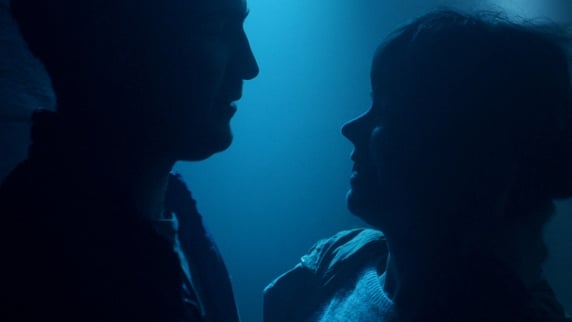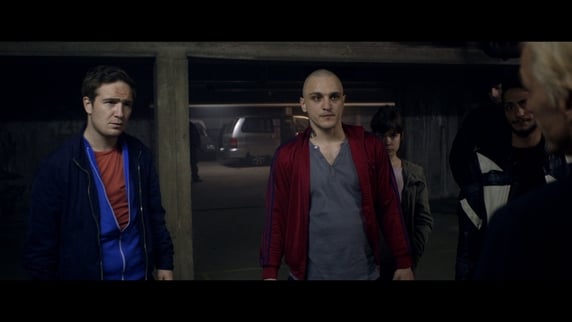Victoria (Laia Costa) is a young Spanish girl working in Berlin who having left a disco in the small hours gets lured into the company of four local wide boys. The party begin to wander fecklessly through the streets, narrowly avoiding a brawl with a number of others, everyone half-drunk or stoned.
The rather naive Victoria becomes attracted to the most protective of the four guys, Sonne (Frederick Lau) and their exchange moves convincingly through the early cycles of flirtation. After some dope-smoking on the high roof that is a favoured haunt of the boys, Victoria pleads that she has to leave to open a nearby cafe at 7 am. Sonne says he will accompany her, and inside the café the mood suddenly darkens as Victoria sits at a piano. She confides to Sonne her disappointment at having not made the grade at Music Conservatory, despite years of practice. A curiously intimate cocoon is created between the pair but the gang of lads come a- knocking again and that air of threat and edgy danger opens up once more.
Gradually, we understand that one of the party has done time in prison and owes protection money to a seasoned criminal. Fatally seduced, as it were, Victoria is persuaded to drive the men to an underground car park where they are effectively given little choice but to undertake a bank robbery shortly after the bank in question opens. Now the tension begins to ratchet up and the movie becomes an intense thriller, as young innocence is clawed into the world of serious crime, guns, car-jacking, and the inevitable police chase.

The decision to film Victoria in one 138-minute take with one camera was a brave and tactically brilliant one - it makes the viewer latch on immediately and lends a curious real-time urgency. In contrast to Hitchcock’s Rope or Iñárritu’s Birdman, Schipper’s film was genuinely shot in a single, uninterrupted take, without any post-production enhancement. Special tribute must be paid to Norwegian cameraman Sturla Brandth Grøvlen whose task must have been particularly challenging.
But then again, the cast are a band of seriously talented young actors and they couldn't afford to mess up either. Much of the action has the feeling of improv, actions taken on the spur of the moment. There is a clever recourse to occasional dumb-show, as the dialogue suddenly disappears and we watch the characters more closely as they interact in silence.

There is too a refreshing impromptu drive to the dialogue, which is mostly that kind of EuropidginEnglish that young people travelling throughout Europe use, with the odd bout of German too as the Berlin lads talk to each other. (To enable us even further, all the dialogue - be it in English or German - is subtitled in English.)
Reminiscent of Michael Haneke's Funny Games in its sudden flare-ups of terror and horror, Victoria must be one of the great films of 2016, but to this reviewer it seemed the denouement stretched on a bit too long. You think the movie is about to end at certain points when in fact it struggles on. But that is a mild caveat and purely personal. Go see.
Paddy Kehoe













